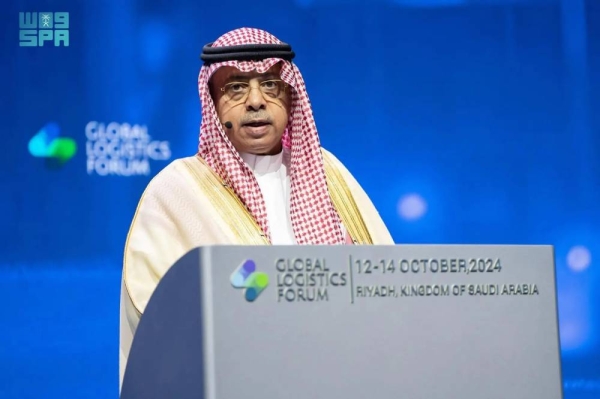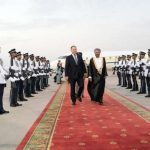Abdulaziz Al-Duailej, the president of the General Authority of Civil Aviation (GACA), emphasized the importance of the National Aviation Strategy in positioning Saudi Arabia as a top global logistics hub by 2030. Speaking at the Global Logistics Forum 2024 in Riyadh, Al-Duailej highlighted the Kingdom’s strategic geographical location, connecting three continents and providing access to 50 percent of the world’s population within a five-hour flight. This strategic advantage allows Saudi Arabia to efficiently connect to vital markets through air freight, especially as global supply chains face increasing pressure from geopolitical factors.
To support the Kingdom’s air freight goals, Al-Duailej announced plans to expand Saudi Arabia’s air freight capabilities by increasing the fleet from seven cargo planes to 27 in collaboration with national carriers. By 2030, the number of aircraft is expected to reach 657, with 187 wide-body and 470 narrow-body aircraft, strengthening Saudi Arabia’s aviation infrastructure and positioning it as a globally competitive power. This expansion in air freight capabilities will play a crucial role in enhancing the Kingdom’s leadership in the global logistics sector, in line with the National Aviation Strategy’s objectives.
Al-Duailej’s remarks at the Global Logistics Forum underscore the Kingdom’s commitment to harnessing its unique geographical advantage and developing its aviation industry to become a major player in the global logistics landscape. With increasing demand for efficient and reliable air freight services, Saudi Arabia is well-positioned to capitalize on its strategic location and growing fleet to meet the needs of global supply chains. By investing in expanding its air freight capabilities, the Kingdom aims to strengthen its position as a key player in the global logistics sector and attract international businesses seeking reliable and efficient logistics solutions.
The National Aviation Strategy plays a crucial role in shaping Saudi Arabia’s aviation industry’s future, focusing on enhancing air freight services to support the Kingdom’s economic growth and development. By increasing the number of cargo planes and aircraft, Saudi Arabia aims to improve its connectivity to key markets and facilitate trade and commerce. With a strong emphasis on efficiency and competitiveness, the Kingdom’s aviation sector is poised to become a key driver of economic growth and development, positioning Saudi Arabia as a top global logistics hub by 2030.
As Saudi Arabia continues to expand its air freight capabilities and enhance its aviation infrastructure, the Kingdom is well-positioned to attract investment and partnerships from international players in the logistics industry. By offering efficient and reliable air freight services, Saudi Arabia can leverage its strategic geographical location and growing fleet to become a preferred hub for global businesses seeking seamless logistics solutions. The Kingdom’s commitment to developing its aviation industry and strengthening its position in the global logistics sector reflects its vision for sustainable economic growth and prosperity.
In conclusion, Abdulaziz Al-Duailej’s remarks at the Global Logistics Forum highlight Saudi Arabia’s ambition to become a top global logistics hub by leveraging its strategic geographical location and expanding its air freight capabilities. With the National Aviation Strategy focusing on enhancing the Kingdom’s aviation industry and positioning it as a key player in the global logistics sector, Saudi Arabia is poised to attract investment and partnerships from international businesses seeking efficient and reliable logistics solutions. By investing in expanding its fleet and improving air freight services, Saudi Arabia aims to strengthen its position as a globally competitive power and drive economic growth and development through enhanced connectivity and trade opportunities.










